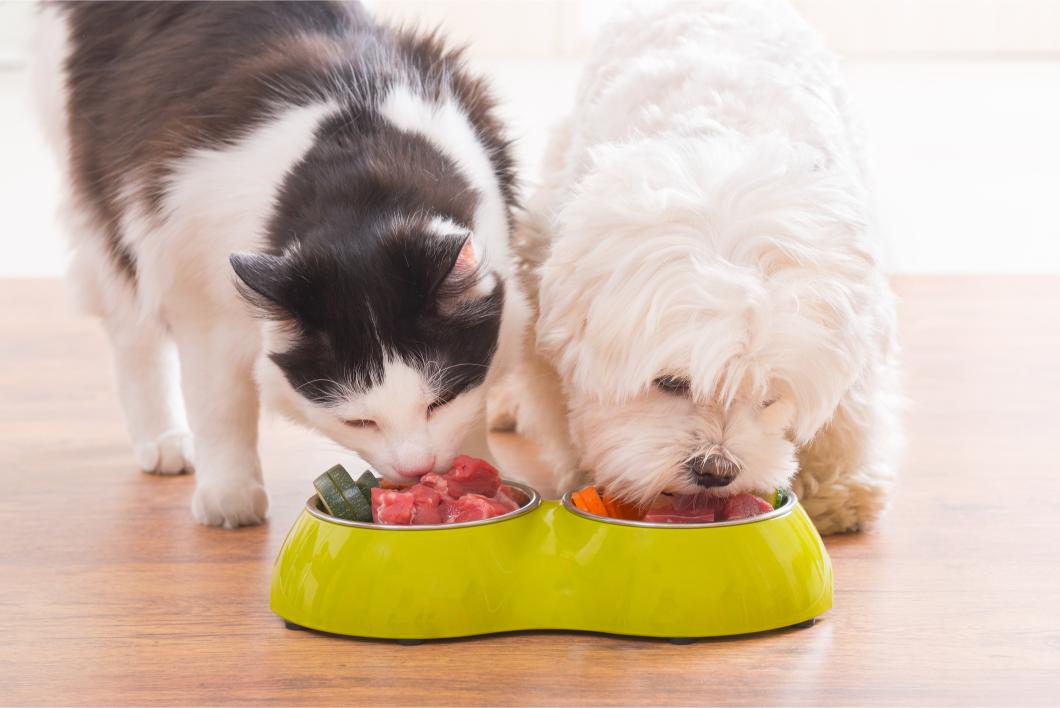Understanding Pet Nutrition

At Bayside Animal Hospital, we understand that your pet’s health and happiness are top priorities. One of the most crucial aspects of maintaining their well-being is proper nutrition. In this blog post, we’ll explore the essentials of pet nutrition, focusing on what to feed your dog or cat to make sure they thrive.
The Basics of Pet Nutrition
Proper pet nutrition is vital for your pet’s overall health and longevity. A well-balanced diet can help prevent various health issues, boost the immune system, and maintain a healthy weight. When considering your pet’s diet, it’s essential to account for their age, size, activity level, and any specific health conditions.
Understanding Canine Nutrition: What to Feed Your Dog
Dogs require a balanced diet to stay healthy and active. Here are the key nutritional components that should be part of your dog’s diet:
Proteins and Amino Acids
- Essential for muscle development and repair.
- High-quality sources: chicken, beef, lamb, and fish.
Fats and Fatty Acids
- Provide energy and support healthy skin and coat.
- Sources: fish oil, flaxseed oil, and chicken fat.
Carbohydrates
- Offer a source of energy.
- Include whole grains like brown rice, oats, and sweet potatoes.
Vitamins and Minerals
- Vital for metabolic functions and overall health.
- Make sure your dog’s food contains a balanced mix of vitamins A, D, E, and K and minerals such as calcium and phosphorus.
Essential Tips for a Balanced Dog Diet
Feeding your dog involves more than choosing the right food. Consider these essential tips to ensure your dog gets a balanced diet:
- Choose high-quality commercial dog food: Ensure it meets AAFCO (Association of American Feed Control Officials) standards.
- Avoid table scraps: Many human foods are toxic to dogs.
- Monitor portion sizes: Overfeeding can lead to obesity and related health issues.
- Provide fresh water: Always keep a bowl of clean water accessible.
Understanding Feline Nutrition: What to Feed Your Cat
Cats have unique nutritional needs that differ from dogs. Here are the primary components of a healthy cat diet:
Proteins and Amino Acids
- Cats are obligate carnivores and require a high-protein diet.
- High-quality sources: chicken, turkey, fish, and beef.
Fats and Fatty Acids
- Necessary for energy and a healthy coat.
- Sources: fish oil, chicken fat, and liver.
Carbohydrates
- Cats have a limited ability to process carbs, so they should be minimal in their diet.
- Opt for fiber sources like vegetables for digestive health.
Vitamins and Minerals
- Essential for immune function and bone health.
- Ensure the presence of taurine, an amino acid critical for cats.
Essential Tips for a Balanced Cat Diet
Feeding your cat appropriately is vital to their health. Here are some tips to help you provide a balanced diet for your cat:
- Select high-quality commercial cat food: Look for options that meet AAFCO standards.
- Avoid feeding dog food to cats: Cats have unique nutritional needs that dog food cannot meet.
- Limit treats and avoid toxic foods: Onions, garlic, chocolate, and grapes are harmful to cats.
- Ensure hydration: Provide plenty of fresh water and consider wet food to increase moisture intake.
Feeding Pets: General Guidelines
Feeding your pets optimally involves following general guidelines to ensure their well-being. Here are a few tips to keep in mind:
- Transition gradually: When changing pet food, do so gradually over a week to avoid digestive upset.
- Regular feeding schedule: Maintain a consistent feeding schedule to promote regular digestion.
- Consult your veterinarian: Regular check-ups help tailor your pet’s diet to their health needs.
By incorporating these guidelines and regularly consulting with your veterinarian, you can ensure your pets enjoy a nutritious diet that supports their overall health and well-being.
Comprehensive Veterinary Care at Bayside Animal Hospital
At Bayside Animal Hospital, we’re dedicated to providing comprehensive veterinary care and guidance on proper pet nutrition. Contact us today if you have any questions about your pet’s diet or need to schedule a wellness visit. Our experienced veterinarians and staff are here to help ensure your furry friends receive the best care possible.


